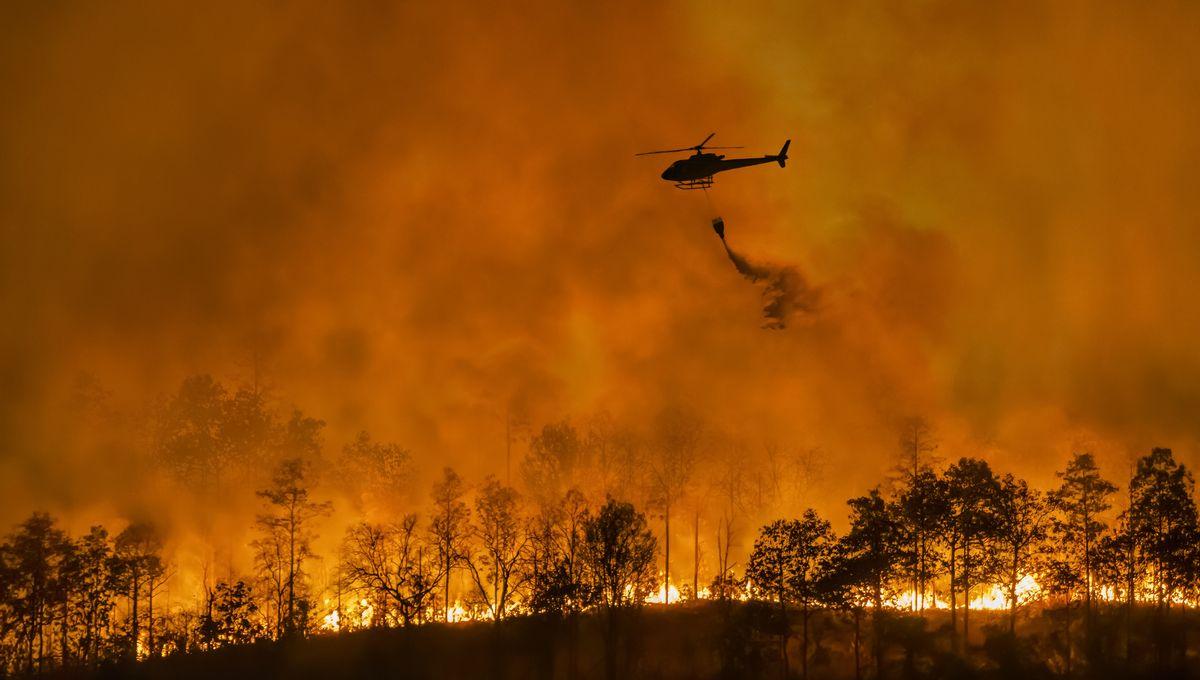-
Noticias Feed
- EXPLORE
-
Páginas
-
Blogs
-
Foros
The Wildfire Paradox Affecting 440 Million People Has As Worrying A Solution As You'd Expect

The Wildfire Paradox Affecting 440 Million People Has As Worrying A Solution As You'd Expect
When you think of wildfires, your mind may turn to the devastating, headline-grabbing blaze that swallowed up parts of Los Angeles at the start of this year. California in general is no stranger to occasionally going up in flames, especially since humanity has rigged the state’s fire season into more of a fire always.
The rest of this article is behind a paywall. Please sign in or subscribe to access the full content. “The western U.S. and particularly California are hot spots of intense fires globally,” pointed out senior author Mojtaba Sadegh, now an associate professor of civil engineering at Boise State University, in a statement. “Our previously published study shows that California experiences a disproportionately large share of U.S. fire impacts, accounting for 72 percent of human exposures despite comprising 15 percent of the nation's burned area.” But here’s the thing: according to a new study from Sadegh and researchers at the University of California, Irvine, blazes like this January’s – that is, Western, high-profile, new to the area – are actually very unusual. In fact, if you were asked to name the continent worst affected by wildfires, chances are you’d have no idea that almost two-thirds of the world’s area and around six out of every seven people exposed to wildfires were found not in America, but Africa. Even within that continent, the effects of wildfires are equally highly skewed. Just five countries – Congo, South Sudan, Mozambique, Zambia, and Angola – account for half of all human exposure to wildfires, the researchers found, plus around 42 percent of the world’s wildfire-burned footprint. Almost 40 percent of that is in Congo alone. And yet, we hear almost nothing about those countries. Instead, news most often focuses on wildfires in the US, Canada, and Australia – countries that constitute less than 2.5 percent of human exposure when combined. It all sounds rather bleak – but there is good news. Kind of. Perhaps surprisingly, the area burned by wildfires worldwide has been steadily decreasing over the past couple decades, with the total in 2021 being more than a quarter reduced since 2002. Which might make you wonder: why do things seem like they’re getting so much worse? Well, the answer, paradoxically, is that they are – just not in that particular respect. Despite this notable reduction in burned area, the number of people exposed to wildfires worldwide has shot upwards, increasing by 40 percent over the same time period. That’s “due largely to an increasing overlap between human settlements and fire-prone landscapes,” explained Amir AghaKouchak, UC Irvine Chancellor's Professor of civil and environmental engineering and co-author of the study. “As climate change intensifies fire weather and global populations continue to expand into fire-prone zones, proactive mitigation will be increasingly critical to reduce the risk of future wildfire disasters,” he advised. That might include techniques such as prescribed fires – controlled burns that can use up the dry leaves and other potential fuels before they get swept up in an overwhelming natural blaze – and improved education and infrastructure to reduce human-caused fires. It’s a problem that the researchers argue requires urgent attention – and despite its relatively few wildfires, places like California shouldn’t ignore the lessons being imparted. So-called “fire weather”, which is marked by conditions like high temperatures, low humidity, and strong winds, have increased markedly over the past decades – it’s quadrupled across the state since 1990 – and when combined with California’s reckless urban development and gung-ho suppression of small fires, it’s a formula that can easily end in destruction. “Wildfires are no longer seasonal or regional anomalies,” said Kaveh Madani, Director of the United Nations University’s Institute for Water, Environment and Health, who wasn’t involved in the research, in another statement. “They have become a global crisis, intensified by rising heatwaves, worsening droughts, and drastic land use changes.” “But instead of stepping up to confront this threat, some of the world’s biggest economies are rolling back protections,” he added – “leaving vulnerable regions and communities to shoulder the heaviest burden.” The study is published in the journal Science.


